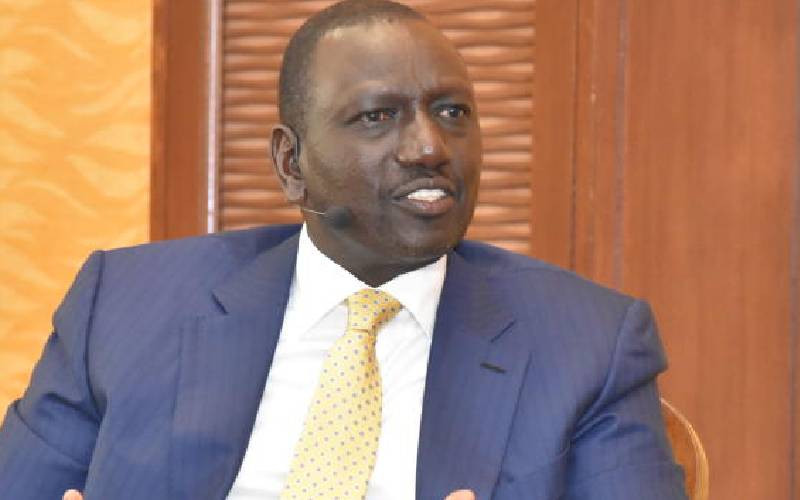
President-Elect William Ruto speaking at KTN Town hall meeting about challenges facing Kenyans and how he intends to tackle them should he be elected into office in the August General Elections on Thursday 7, July 2022. [Samson Wire. Standard].
Long before Jomo Kenyatta got the reins of power, the Brits and other nationalities ran our economy. Their key focus was the land, with plantations dominating, more like the US during its colonial era. A few crops dominated the market; that included wheat, coffee and pyrethrum. Dairying, beef, sheep and goats rearing was also common.